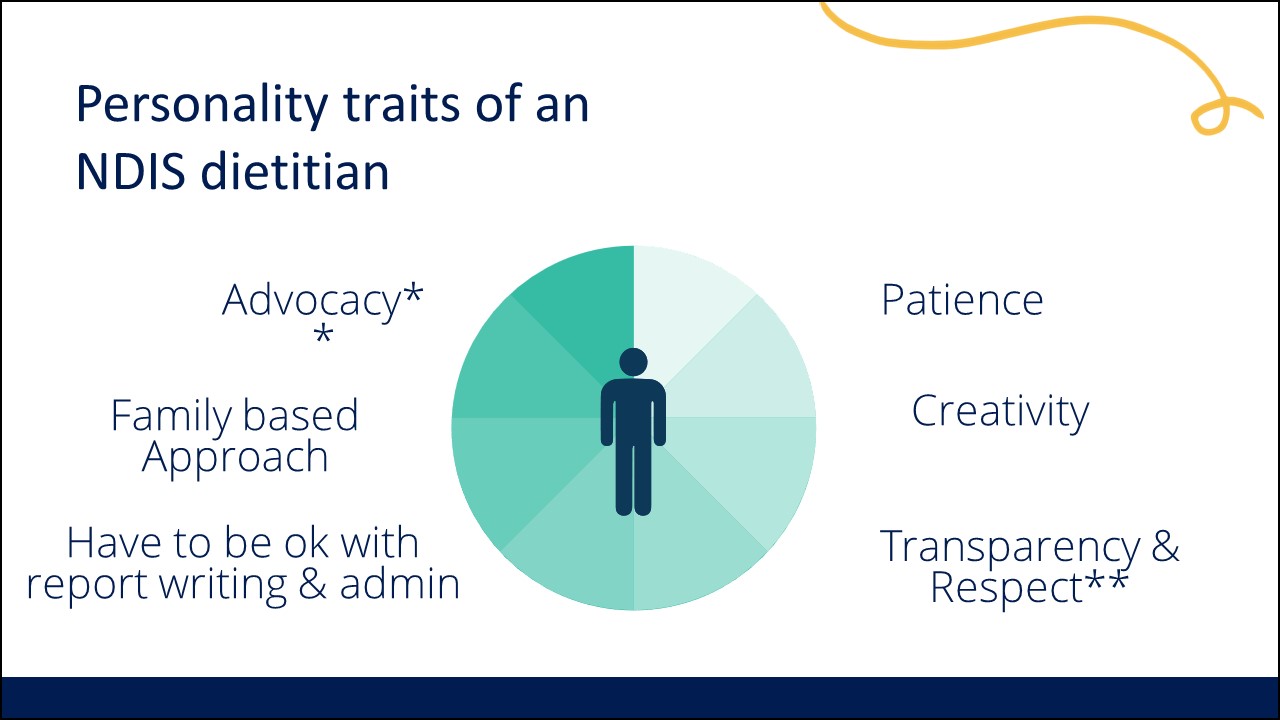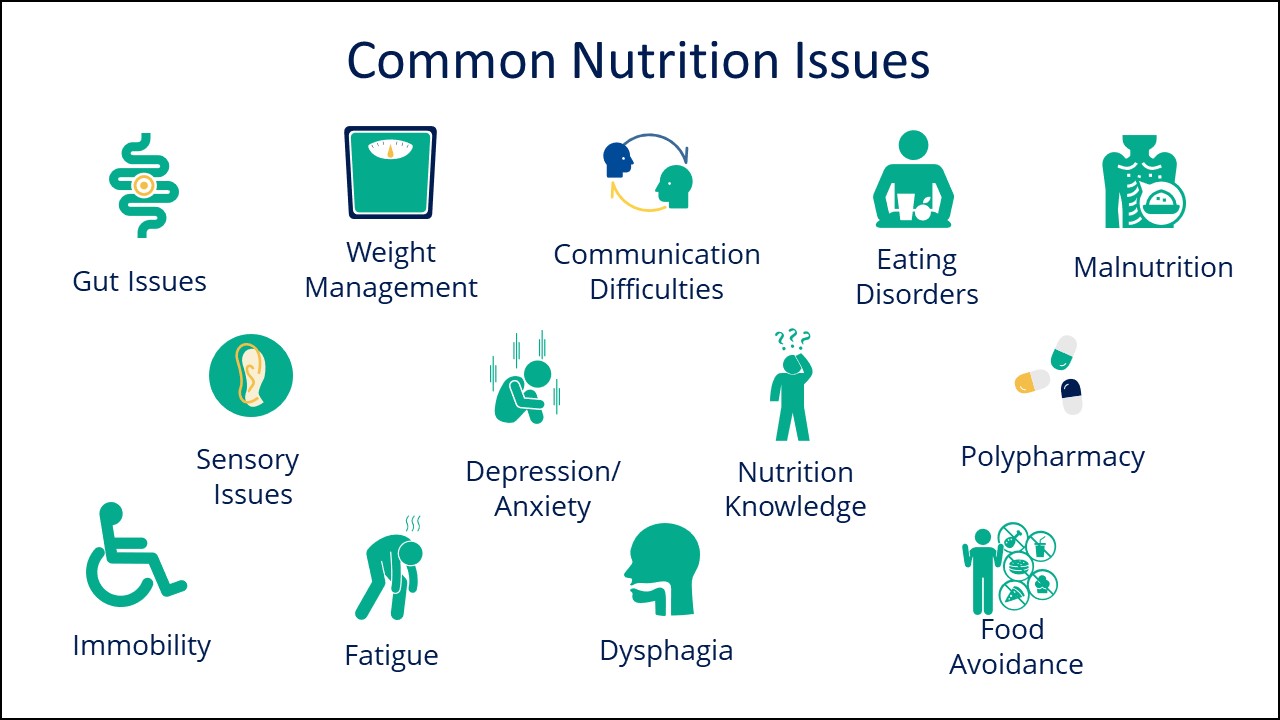A dietitian’s guide to working in the NDIS. A 3-part series presented by Shannyn Thatcher, APD
 Anthea Talliopoulos, APD
Anthea Talliopoulos, APD
Since the official roll-out of The National Disability Insurance Scheme (NDIS) in 2016, many individuals living with disabilities have had increased access to allied health services. However, there is a potential for further growth; with at least 47% of participants not meeting current diet recommendations, NDIS participants could greatly benefit from dietetic input. Unfortunately, given that the NDIS is a new sector, some dietitians are not aware of the processes behind it, and thus are often reluctant to work with NDIS participants.
In this relevant and detailed series of presentations, Accredited Practising Dietitian Shannyn Thatcher shares her knowledge and expertise about working with the NDIS on a down-to-earth level. She takes working with the NDIS back to basics, clearly guiding us through each key process of working in this very rewarding sector.
For dietitians who are interested in working within the NDIS, or who are just getting started with working with the NDIS as Shannyn provides a step-by-step approach to getting started.
In the first presentation, she outlines the NDIS from a big-picture level, talking through the basics of how it operates for both participants and clinicians. She talks through NDIS participant eligibility, the process of submitting an application, and the key individuals involved in setting up a plan and in following this up for participants. Common nutritional impacts of disability are also clearly outlined, including malnutrition, dysphagia, sensory issues, and mental health implications, all of which can be best addressed with a dietitian working as part of the treating team.
In the second presentation, Shannyn focuses on outlining the essentials of working as a dietitian in the NDIS, explaining her journey and findings in becoming an un-registered provider. She explains client funding management including how an NDIS un-registered provider can work with self-managed and plan-managed participants, making up to 70% of NDIS participants, whilst an NDIS managed provider can accept NDIA managed clients, making up 18% of NDIS participants in total. She also talks through the key role of liaising with the support coordinator, plan manager, local area coordinator (LAC), and the support worker. Travel time coverage and participant invoicing are also clearly explained, making this presentation very practical.
In the third and final presentation, Shannyn thoroughly discusses the importance, the process and submission of report writing which is an essential process in working with NDIS participants. She explains the importance of meeting deadlines to allow client funding and plans to be processed, and the significance of advocating for nutrition care in a clear manner to enable the needs of NDIS participants to be met. She does this through providing a template and talking through the necessary criteria to be included within the letter.
Overall, Shannyn displays how working within the NDIS can be a complex but extremely rewarding and possible process. It is inspirational to hear how much of an impact working with NDIS can have on the lives of others!
Summary:
- The NDIS is a newer an emerging sector for dietitians, with a potential for significant growth heading into the future.
- At least 47% of NDIS participants are not meeting current diet recommendations and could greatly benefit from further dietary assistance from a dietitian.
- Working within the NDIS is a challenging, constantly evolving but very rewarding process.
- Although there are multiple layers to working with the NDIS, the process is possible and can have a significant beneficial impact in supporting NDIS participants, enabling their individual needs to be met.
Shannyn Thatcher is a passionate advocate for increasing the use of dietitians in the NDIS - and keen to encourage other APDs to support people with a disability to live fuller, healthier lives through improved nutrition.
From her Melbourne-based practice, The Realeatitian, she provides support for a diverse caseload of NDIS participants of all ages, with conditions ranging from Autism, Intellectual Disabilities, MS and Parkinson’s Disease to rare neurological and genetic conditions. Besides delivering NDIS- related training presentations to dietitians in private practice, she’s worked to raise the profile of dietitians within the disability sector by presenting to multiple disability organisations, including the Australian Foundation for Disability, as has been invited to share her knowledge and expertise with national organisations to inform patient pathways.
Shannyn is committed to developing strong connections with her clients and ensuring they receive the utmost respect and care in everything she does. Shannyn, who graduated with a Master’s Degree in Dietetics from La Trobe University, continues expanding her knowledge and taking on extra training to support her varied and unique caseload.
To register for the presentation and associated documents including the assessment quiz click here
For Part 1 Recognising NDIS eligibility and assisting your clients to access the NDIS
For Part 2 Working in the NDIS; referrals, dietitian role, invoicing
For Part 3 Report writing

